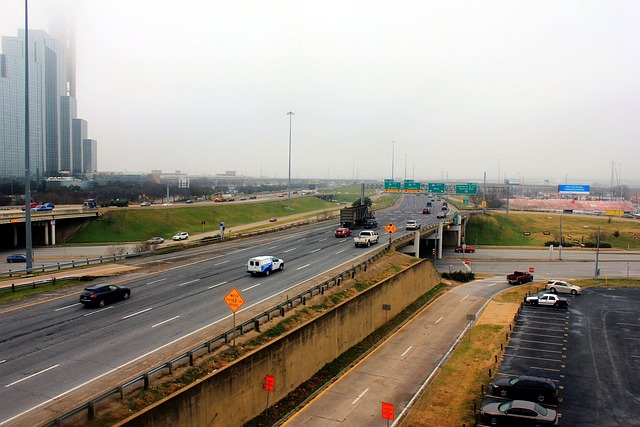
Living in Texas is all about going big, but that shouldn’t extend to your auto insurance bill. While finding affordable car insurance can be a challenge, there are definitely ways to obtain inexpensive auto insurance coverage without sacrificing quality. This article unpacks the world of affordable car insurance in Texas, answering key questions to help you navigate your options and save money.
Key Takeaways:
- Texas offers competitive insurance rates with discounts and lower costs for minimum liability coverage.
- Premiums are influenced by your driving record, age, vehicle type, and location.
- Find a balance between cost and adequate coverage, understanding liability, collision, and comprehensive options.
- Tailor coverage based on car value, finances, and risk tolerance, opting for higher liability limits and relevant coverage options.
Is Inexpensive Auto Insurance in Texas Possible?
Absolutely! Texas boasts some of the most competitive car insurance rates in the nation, making it possible to find reliable auto insurance coverage without breaking the bank. According to the National Association of Insurance Commissioners (NAIC), the average annual cost of car insurance in Texas is $1,854, significantly lower than the national average of $2,645.
This affordability stems from several factors, including:
Competition: Texas has a highly competitive insurance market, with numerous companies vying for your business. This competition drives down prices and incentivizes insurance companies to offer attractive discounts and promotions.
Minimum Coverage Requirements: Texas only requires drivers to carry liability insurance, which covers damages you cause to others in an accident. This basic coverage is typically less expensive than full coverage, which includes additional protections like collision insurance and comprehensive insurance.
Favorable Demographics: Factors like a younger average driver population and lower accident rates in certain areas can contribute to a lower overall auto insurance rate.
What Factors Affect My Inexpensive Auto Insurance Rates in Texas?
Several variables influence your car insurance rates in Texas, including:
Driving Record: Having a clean driving record with no accidents or violations is the single biggest factor leading to lower premiums. Conversely, points on your license or recent at-fault accidents can significantly increase your rates.
Age and Experience: Younger and less experienced drivers typically face higher premiums due to statistically higher risk of accidents. As you gain experience and age, your rates typically decrease.
Vehicle Type and Use: The type of car you drive (make, model, year), its safety features, and annual mileage all play a role in determining your rates. Sports cars and high-performance vehicles generally cost more to insure than safer, economical models. Similarly, driving less frequently translates to lower risk and potentially lower premiums.
Location: Where you live in Texas can significantly impact car insurance pricing. Urban areas with higher traffic congestion and accident rates typically see higher insurance premiums compared to rural areas.
Coverage Options: The type and amount of auto insurance coverage you choose directly affects your costs. Opting for minimum insurance coverage will be less expensive than full coverage.

What Coverage Do I Need with Inexpensive Auto Insurance?
While finding affordable car insurance is important, it’s equally crucial to ensure you have adequate coverage to protect yourself financially in case of an accident. Striking the right balance between affordability and protection requires understanding the different coverage options available and making informed choices based on your specific needs and risk profile.
Here’s a breakdown of key coverage options:
Liability Insurance (Required in Texas): This is the mandatory minimum coverage for car insurance in Texas and covers any injuries and property damage you cause to others in an accident. The state mandates a minimum coverage of $30,000/$60,000/$25,000, translating to $30,000 per person for bodily injury, $60,000 total per accident for bodily injury, and $25,000 for property damage. It’s essential to remember that these minimums might not be sufficient, particularly if you cause an accident with severe injuries or property damage. Consider increasing your liability limits to provide better protection, especially if your assets exceed the minimum coverage amounts.
Collision Coverage: This covers damage to your own vehicle caused by a collision with another object, regardless of who is at fault. This includes scenarios like hitting another car, a guardrail, or even a pothole that damages your car’s undercarriage. Collision coverage can be crucial, especially if you drive a newer or financed vehicle. However, if your car is older and has a low market value, you might choose to forgo collision coverage to save on premiums.
Comprehensive Coverage: This covers your vehicle for damage caused by events other than collisions, such as:
- Theft: This reimburses you for the car’s value if it’s stolen.
- Vandalism: Covers repairs for damage caused by vandalism, such as broken windows or scratches.
- Fire: Provides coverage for damage caused by fire, regardless of the source.
- Weather events: Covers damage from natural disasters like hail, floods, or falling trees.
The ideal coverage combination depends on several factors, including:
The value of your car: If your car is older and has a low market value, opting for minimum coverage and a higher auto insurance deductible might be a reasonable option.
Your financial situation: If you have a significant financial safety net, self-insuring for minor repairs might be an option. However, if you’re on a tight budget, comprehensive coverage can protect you from unexpected financial burdens.
Your risk tolerance: Consider your comfort level with taking on financial risk. If you are averse to unexpected costs, opting for more comprehensive coverage might be worthwhile for peace of mind.
All of these various options can have significant impact on finding inexpensive auto insurance in Texas.



